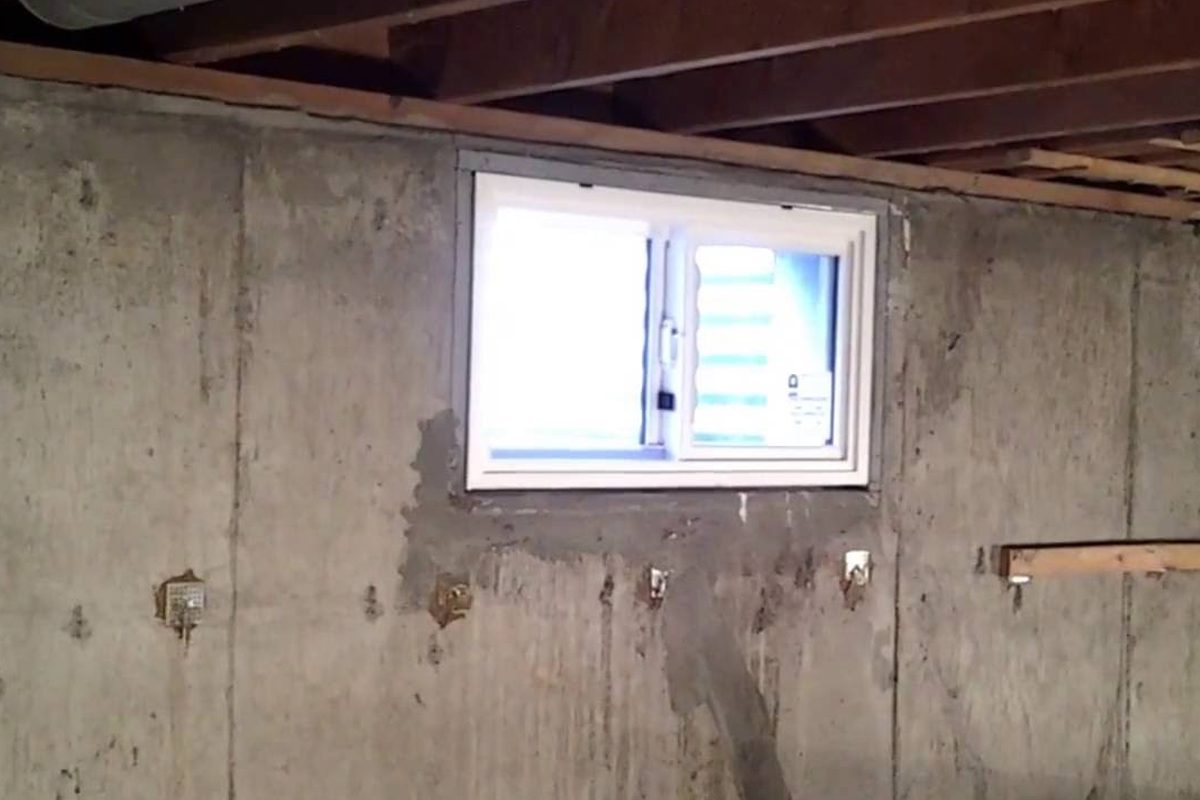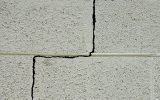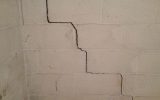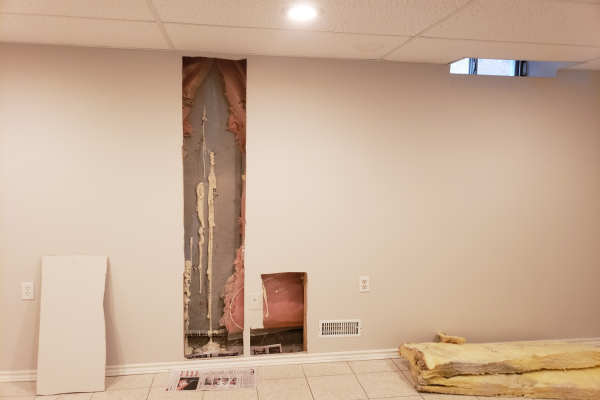Why You Have Cracks in Your Foundation
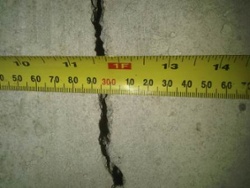
A cracked poured concrete foundation is a fact of life. In fact, cracks are so commonplace that they probably develop in every poured concrete structure, regardless of the size, type, whether residential or commercial, reinforced or not. When best practices are followed, concrete is arguably one of the most durable and long lasting materials used to build your home as well as the majority of new commercial structures, such as condo towers. In reality, however, durable, high strength, and crack resistant concrete is not something that happens by accident. Consequently, it is crucial that concrete contractors follow industry best practices with respect to concrete placement.
When we meet with homeowners, a commonly asked question pertains to why foundations crack. Given the rapid development of subdivisions in and around the Greater Toronto Area over the past 30 years, the majority of homeowners assume that the builder did a poor job during construction or cut corners, resulting in a weak, cracked foundation. In reality, the reasons for poured concrete crack development are numerous and complex.
Reasons why poured concrete cracks develop:
- Drying shrinkage during the concrete curing process (usually excessive water in the concrete mix) – referred to as plastic shrinkage;
- Thermal cycling (contraction and expansion) of concrete over many years;
- Settlement of the footing due to construction of foundation walls on disturbed or poorly compacted soil;
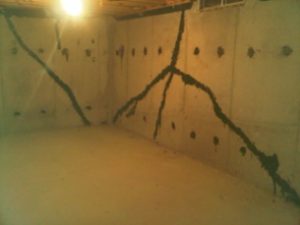
- Overload conditions that produce flexural, tensile, or shear cracks (heavy machinery working too close to the foundation);
- Lack of appropriate control joints in the foundation walls;
Restraint of movement; and - Concrete that was poured on frozen ground.
Foundation Crack Repair Options
By recognizing that a cracked foundation is attributable to crack development for one or more reasons, it is logical that the cause of crack development must be taken into account in determining the most suitable foundation crack repair method. In addition, the reason for repairing any given foundation crack has a bearing on the foundation crack repair method to use. Finally, the budget available for repairing foundation cracks is also a determinant of the crack repair option(s) ultimately selected.
Clearly, selecting how to fix foundation cracks requires knowledgeable analysis of the cause(s) of the foundation crack(s), therefore, choosing the right contractor to repair a foundation crack is of paramount importance. Most people select a contractor in one of the following three ways:
- They call several waterproofers to obtain the lowest possible price (proper diagnosis and expertise are not a consideration);
- Several companies are asked to send over a representative to provide an opinion; or
- Three companies are asked to send over a representative to provide a quote.
If the cost of repairing a cracked foundation is the only criterion used to choose a contractor then the first approach will suffice. However, the “right” contractor to choose to repair a foundation crack should meet the following criteria:
- The contractor uses technicians, not salespeople, to assess foundation cracks; and
- The contractor provides the following services:
a. Epoxy crack injection;
b. Polyurethane crack injection;
c. External crack repairs; and
d. Crack stabilization.
Note: The list of services above itemizes the three commonly available foundation crack repair options; there are other foundation repair options that are not listed and pertain to foundation stabilization. If a contractor does not offer services (a) through (d) then you are being offered limited foundation crack repair options and your cracked foundation may not be repaired using the most effective foundation crack repair method available.

